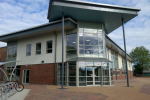
Looking back to this time last year, I doubt many would have expected what was to come. Coronavirus has touched all our lives and its impact will be with many of us for the rest of our lives. Many have suffered loss, pain and bereavement and I know first-hand how painful this has been.
With much uncertainly, not just here in York but globally, it’s been difficult for our politicians both locally and nationally to always give the decisive answers we all crave in times like these but I’m in no doubt that most, but sadly not all, have been able to put party interests aside and focus on doing the right thing with the best of intentions.
With York’s economy so heavily dependent on leisure and tourism the lockdowns have had a devastating effect on many of our great businesses. Massive financial support from the Government to business and to assist our local Council has undoubtedly been helpful but this hasn’t helped everybody or made up for all the losses. Whilst I’m absolutely certain that our resilient and innovative economy will recover in time it’s critical that we do this safely, that tourism restarts gently and that we don’t do anything to jeopardise our recently improving infection rates.
Understanding the long term impact of this pandemic will be the focus of research and study for many years to come. Early indications have highlighted how those living with underlying conditions have experienced the illness more severely and it’s critical that we use this to turbo charge the drive towards prevention of ill-health and make sure people have the knowledge and support they need to stay healthy. This needs to be targeted in ways to reach those excluded from mainstream public health advice and clearly links to wider determinants of health such as housing, employment and education. Likewise, we must encourage those who are experiencing other health issues to seek medical advice at the earliest opportunity. Treatments for cancers for example have the best outcomes with early diagnosis and I’m worried many people have held back from seeking help through fear.
Social distancing has though enabled some to receive health care and health advice in different ways and I’m sure this fundamental change is something that we’ll see continue and grow as we move into the post-covid world.
Whilst our health services have been primarily focussed on supporting the health care needs of our elderly and vulnerable, it’s critical that we don’t underestimate the long term impact covid will have on our children and young people. In addition to concerns about anxiety and mental health the year-long disruption to their education is a big worry, particularly for those from the most disadvantaged backgrounds. I commend our schools and parents on their efforts to support home learning but like everybody else, I want to see schools reopened and pupils back in class as soon as it can be safely done.
Whilst covid has brought loneliness for many, pain and grief for others, it has also reminded us of some of the things we may have forgotten. Our communities coming together to look out for each other, people getting to know their city and neighbourhoods on foot and reconnecting with the green spaces around them, the opportunity to reflect on our priorities and perhaps make changes that in retrospect seem long overdue. I’m thankful for some of these more optimistic aspects and coupled with looking forward to a return of our freedoms, hope we can continue to embrace these in the months and years ahead.

